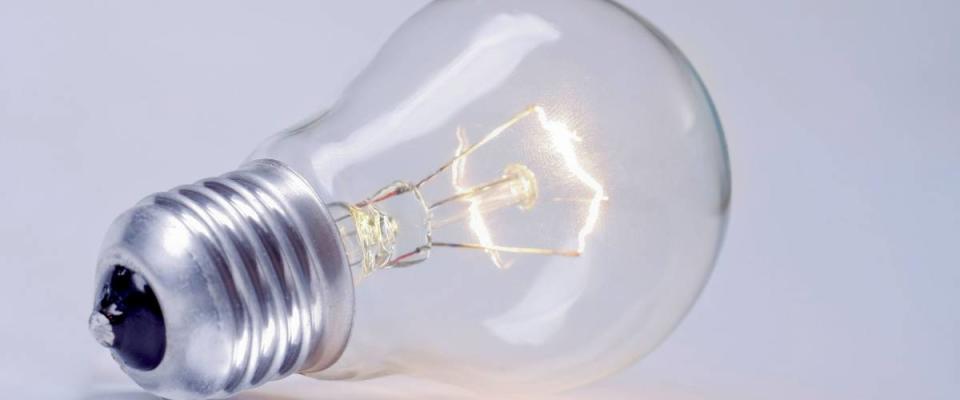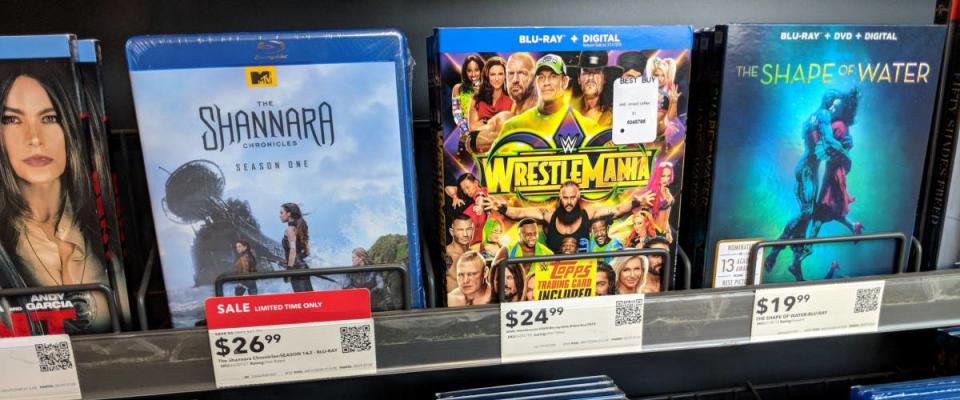These Everyday Products May Soon Vanish From the Marketplace

Remember VCRs? Typewriters? Telephones with rotary dials instead of keypads? Landline phones?
As technology marches on, everyday items that you couldn't imagine living without are replaced with new products that are more efficient and useful.
As we gladly pull out our credit cards and embrace what's new, the old stuff disappears like the dinosaur and the dodo bird.
Here are 10 items that could be headed for extinction next. Someday soon, you might be asking the "Remember?" question about these.
1. Desktop computers

The family's desktop computer might be their last.
As laptops have slimmed down, tablets have taken hold and phones have become equipped to do practically anything, the need for desktop computers has rapidly decreased.
Workhorse computers used to require bulky hard drives to store memory. But now, computers that are too heavy to carry have become relatively obsolete, because of the advent of flash storage.
Younger generations are deciding portable computing is their best option. One 2018 survey found that only about 3 in 10 Americans between ages 18 and 29 owned a desktop computer, versus more than half of those ages 50 to 64.
2. Keys

You may not have to worry about losing your keys much longer.
Losing your keys may not be a thing much longer, as new technology is rapidly replacing standard metal locks and keys.
Many of us are already familiar with the coded plastic cards used to gain entry into hotel rooms. But already, hotels are dumping those cards in favor of smartphone apps, and soon your phone might also help you unlock the doors to your home, car and office.
Further into the future, we'll likely use our fingerprints and facial recognition in place of keys.
3. College textbooks

Students are about to graduate from using old-fashioned college textbooks.
To the joy of students everywhere, those bulky, super expensive college textbooks may soon become a thing of the past.
Within a few years, many experts suspect e-readers and tablet computers will become the norm for accessing reading assignments at universities. And some experts forecast that K-12 classes will follow the same trend.
Not only are e-readers more lightweight and convenient, but they also allow teachers to assign electronic textbooks with interactive features that can will help students master skills more thoroughly.
4. Televisions

TVs may be on the way out before long.
Though TVs today have slimmed down substantially, even the sleekest among them may soon become a tribute to the past.
Leading technology companies such as Apple are sinking billions of dollars into the development of augmented reality and virtual reality platforms.
Rather than watching a story play out on a flat screen, the future will offer you the chance to use eyeglasses or even contact lenses to immerse yourself in a story like never before.
5. Manual transmission vehicles

Automakers are shifting away from standard transmission.
Though manual transmission cars once boasted better gas mileage, several car companies including Mazda and BMW now offer automatic transmission models that score better mileage ratings than their stick-shift counterparts.
Edmunds estimated in 2016 that only about a quarter of new vehicle models in the U.S. were available with standard transmissions and that fewer than 3% of cars sold nationwide were manual vehicles.
Audi has stopped offering manual transmission cars in the U.S. Other automakers have moved to "semi-automatic" or "automated manual" transmissions that are similar to stick, though a computer handles the work of the clutch.
Saving for the down payment on your next car? Calculate how long it will take you to reach your savings goal.
6. Incandescent lightbulbs

The outlook for old-fashioned incandescent lightbulbs looks dim.
Old-school incandescent lightbulbs similar to the one Thomas Edison invented have been on the way out for years, thanks to government regulations meant to promote more energy-efficient lighting.
The tradtional bulbs were expected to pretty much disappear from stores completely in 2020, though the Trump administration is trying to roll back the rules.
So, some incandescents — like three-way bulbs — may be around a while longer. But many consumers have already gotten into the habit of choosing LEDs and other newer types of bulbs because they last longer.
7. Analog watches

Time is running out for analog watches.
Though they may seem "timeless," analog watches seem destined to become time-telling relics, like sundials.
The old-fashioned watches with hour, minute and (sometimes) second hands faced a stiff challenge from digital watches for decades, and then along came the real game changer: smartwatches.
Those are bound to get even smarter as developers work on offering video calling, streaming and other features without tanking the battery life. Makers of analog watches have been holding on by promoting their products as fashion accessories.
8. Remote controls

Consumers may soon put down the remote -- for good.
Within a decade or so you'll no longer fight with your family members for control of the remote, though you may find those skirmishes replaced with shouting matches. Literally.
Appliances of the future will be controlled by voice, and maybe gestures, too.
The transition is already underway — just ask Alexa. Smart speakers and many streaming sticks and boxes have voice-detection capabilities right now, though the multi-button remote remains a fixture on many a coffee table.
9. DVDs

Poor DVDs. Though once a highly prized way to own a copy of your favorite movie, they've been no match for the streaming revolution.
DVD rental stores have become scarce (an Oregon Blockbuster is the only one left), and the DVD and Blu-ray Disc departments in big-box stores have been shrinking.
But Redbox still operates more than 40,000 DVD rental vending machines, and Netflix's DVDs-by-mail service has 2.7 million subscribers, though that number has been in a steady decline.
10. Car insurance

When we're all riding in driverless cars, will we need auto insurance?
Don't get the wrong idea: Car insurance is still required today for most U.S. drivers, so don't stop paying your premiums! But there's speculation that auto policies could become extinct as more self-driving cars take to the road.
The thinking goes that once robot vehicles take over and eliminate the human errors that cause accidents, roads will be so safe that insurance won't be needed.
Insurers fully expect that they will continue to provide coverage in the future — though maybe not for motorists.
"The move to AV [autonomous vehicles] is set to drive the need for more commercial insurance as car manufacturers will assume much of the risk for this new tech," says a blog post from the trade group the Insurance Information Institute.


